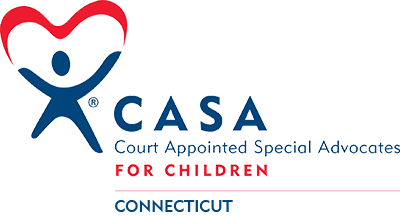
COVID-19 is putting our communities under extraordinary pressure. As we all scramble to adjust to our new realities, we must be especially mindful of risks that prolonged school closures and social distancing policies will pose to the safety and security of our most vulnerable children.
With each passing day, the risk factors for abuse and neglect are not only increasing, but also becoming harder for us to identify. In particular, children under state supervision because of reported abuse or neglect now face both greater inequities in educational opportunities and also limited access to resources and protections they rely on through their schools.
We haven’t experienced this level of social disruption in any of our lifetimes. Necessary efforts to protect the public’s health are impacting our economy, infrastructure, food security, work arrangements, and educational opportunities.
School districts across Connecticut are doing an admirable job of continuing to provide meals for children who rely on school for daily nutrition, and providing remote learning opportunities. As we shift to virtual learning across the state, some districts are also making laptop computers available to children who cannot afford them. Despite these interventions, there is no question that children living in unstable home environments are more at risk today than they were two weeks ago.
There is no question that children living in unstable home environments are more at risk today than they were two weeks ago.
In 2019, 10,478 children were under the jurisdiction of Connecticut’s Superior Court of Juvenile Matters because of abuse or neglect. There are undoubtedly more children, not currently under the court’s jurisdiction, quarantined at home facing heightened risk factors for abuse or neglect as parents grapple with even greater economic and social pressures.
School closures and social distancing complicate our ability to identify such risks. Former Commissioner of the Department of Children and Families (DCF) Joette Katz illuminated some of these issues in a March 20 Op Ed published in the Connecticut Law Tribune. In the absence of teachers and school administrators who play a vital role in identifying abuse or neglect of children, Katz warns that many reports may not be made at all. Affirming Katz’s concerns, CTMirror.org reporter Jacqueline Rabe Thomas reported this morning that the number of daily calls into the DCF Careline dropped from 126 to just 39 in the first week of school closures.
At the same time, DCF’s ability to attend to both existing cases and new reports is complicated by social distancing policies. As current DCF Commissioner Vannessa Dorantes noted in her recent guidance to DCF staff regarding COVID-19, the Department faces the extraordinary challenge of keeping children safe, while also protecting front line staff from the virus’s spread.
Home visits and investigations of reports that come in through the DCF Careline have to be weighed against a series of COVID-19 risk factors, adding additional considerations to the agency’s triage process. This further limits the number of children to whom the agency can respond. Thomas’ article notes that 13,300 at-risk children have now been relegated to remote monitoring as in-person services and supervision are limited by mandates to protect public health.
Compounding the increased safety challenges at-risk children are facing is the unrealistic expectation that these children will have the resources and support with which to succeed in a virtual learning environment in the weeks ahead. Stark contrasts in our school districts’ plans for addressing COVID-19 related school closures run the risk of exacerbating long standing achievement gaps between Connecticut’s low-income students, and their more affluent peers.
The CT Mirror highlighted these issues last week, comparing the response in Glastonbury, which provided iPads and comprehensive virtual learning plans for each of its nearly 6,000 students; with Bridgeport, where teachers did their best with worksheets and written assignments, but do not have access to the technological resources our more affluent school districts can afford. Add to this the limited resources parents in low-income households have to support their children’s virtual learning through an extended period of school closures, and you have the recipe for a host of potentially adverse outcomes for children. The COVID-19 response thus has the potential to stack the deck against our lower income students to an even greater extreme.
As we implement emergency measures to protect our economy, we must also consider additional measures to protect the health, safety, and access to education for our State’s most vulnerable children. Connecticut Court Appointed Special Advocates (CASA) stands ready to do its part.
Our programs train and supervise citizen volunteers to work one-to-one with children who have experienced abuse or neglect. Under Connecticut’s 2016 CASA Statute, any child who is under the court’s jurisdiction because of abuse or neglect is eligible for a CASA volunteer. CASA program leaders have worked tirelessly in recent weeks to shift volunteer training to an exclusively on-line curriculum so we can continue training new volunteers as long as social distancing policies persist. Existing volunteers are quickly adapting to engaging with children by phone or through video conference
Our volunteers can help ensure that urgent safety risks are readily brought to DCF’s attention. They can keep in close touch with children who are not an urgent safety risk but who will benefit from the extra support of a consistent adult to add stability to their lives. They can also offer routine academic accountability to take pressure off of parents and caregivers who don’t have the capacity to provide that kind of support. We typically require volunteers to check in with the child they support monthly at a minimum. We can increase the frequency of contact to accommodate increased needs through this crisis.
We have to take dramatic action to protect the public from this new, alarmingly contagious virus. As you look for ways to have an impact, in addition to social distancing, please consider donating to local nonprofits like Connecticut CASA. With proper funding, we are equipped to share the load with state agencies and keep our most vulnerable children not only safe, but emotionally supported, through this unprecedented period of social isolation.
We must also pursue creative collaboration across agencies and organizations to address this growing child welfare crisis. If we come together to forge joint solutions in pursuit of shared goals we will achieve more meaningful outcomes for the children and families relying on our help.
Lauren Gibbons Messner is Executive Director of the Connecticut CASA Association.


